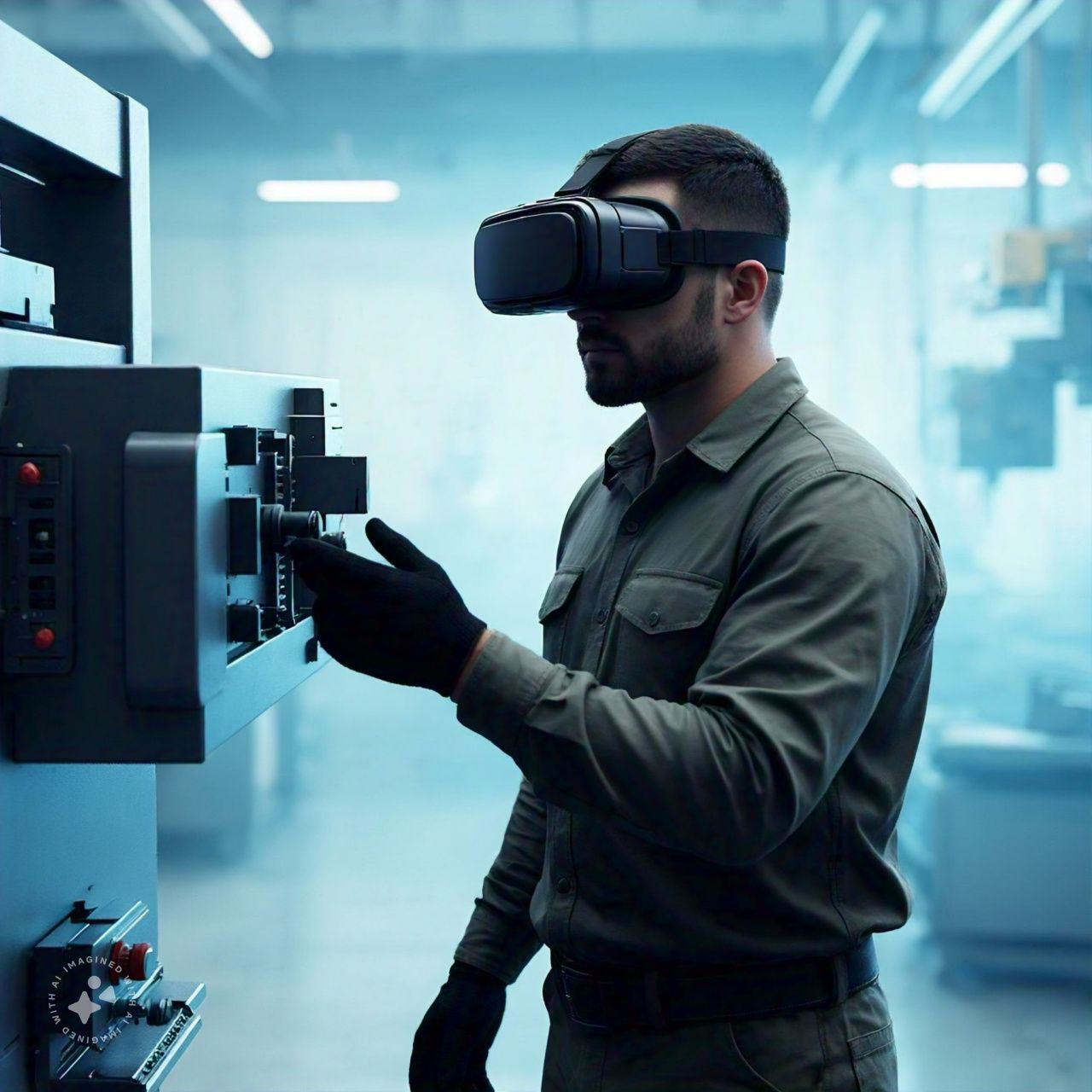As industries around the world continue to evolve, the need for highly skilled employees has become more crucial than ever. One of the most significant challenges companies face is finding cost-effective and efficient methods to train their workforce. Traditional training methods often involve high costs, long hours, and a potential halt in productivity. However, a transformative solution has emerged: NextGen Virtual Training for Industry. This cutting-edge technology offers a dynamic and immersive learning environment, allowing employees to develop skills without the constraints of traditional training methods.
In this article, we’ll explore the benefits of NextGen Virtual Training for Industry, how it offers a cost-effective solution for industrial skill development, and why it is becoming an essential tool for modern industries.
What is NextGen Virtual Training?
NextGen Virtual Training refers to the use of advanced virtual reality (VR) technologies to simulate real-world industrial environments for training purposes. Employees can use VR headsets, interactive simulations, and immersive environments to practice their skills in a risk-free and controlled setting. Unlike traditional classroom-based training, this approach enables learners to experience real-world scenarios in virtual space, improving the retention of information and enhancing practical skills.
NextGen Virtual Training has quickly gained popularity in industries such as manufacturing, construction, oil and gas, and healthcare due to its ability to provide hands-on experience without the risks associated with real-world training.
Benefits of NextGen Virtual Training for Industry
1. Cost-Effective Training Solutions
One of the primary reasons for adopting NextGen Virtual Training in industries is its cost-effectiveness. Traditional training methods often involve expenses related to hiring trainers, renting training spaces, purchasing materials, and even shutting down operations for on-the-job training. With virtual training, these costs can be significantly reduced. By providing employees with VR headsets and a simulation environment, businesses can eliminate many of the overhead expenses and offer continuous learning opportunities at a fraction of the cost.
2. Reduced Downtime
In industries where every minute of operation counts, downtime for training can lead to significant productivity losses. NextGen Virtual Training minimizes downtime by allowing employees to practice their skills in a virtual environment without halting production. Workers can train during off-hours or integrate short training sessions into their daily routines, ensuring that productivity remains uninterrupted.
3. Enhanced Safety
In industries where safety is a top priority, such as construction or oil and gas, training employees in a virtual environment ensures that they can practice handling dangerous tasks without real-world risks. NextGen Virtual Training allows employees to learn how to operate heavy machinery, respond to emergencies, or manage complex systems in a controlled environment, reducing the risk of accidents and injuries.
4. Personalized Learning Experience
Traditional training often adopts a one-size-fits-all approach, which may not address the unique needs of every employee. NextGen Virtual Training offers a more personalized learning experience. Employees can learn at their own pace, repeat difficult tasks as often as needed, and receive instant feedback on their performance. This customized approach helps ensure that all employees, regardless of their skill level, gain the necessary knowledge and expertise to perform their jobs effectively.
5. Increased Employee Retention
Studies have shown that immersive training environments, such as virtual reality, can improve information retention rates compared to traditional training methods. By allowing employees to engage in interactive and realistic scenarios, they are more likely to retain the information and skills they need to perform their jobs. NextGen Virtual Training’s hands-on approach enhances both muscle memory and cognitive retention, leading to better outcomes for both the employees and the company.

Cost-Effective Solution for Industrial Skill Development
6. Scalable Training Programs
For industries with a large workforce spread across different locations, implementing a standardized training program can be a logistical challenge. NextGen Virtual Training provides a scalable solution, allowing companies to train employees regardless of their physical location. As long as employees have access to the necessary VR equipment, they can participate in the same high-quality training program as their colleagues. This scalability ensures consistency in training and performance across the organization.
How NextGen Virtual Training for Industry Works
Implementing NextGen Virtual Training for Industry involves integrating virtual reality platforms, creating custom simulation environments, and providing employees with the necessary VR tools. The process typically begins with assessing the company’s training needs and developing tailored virtual training modules. These modules simulate real-world industrial scenarios that employees may encounter on the job.
For example, in manufacturing, workers can practice assembling complex machinery or troubleshooting equipment issues in a virtual setting. In the construction industry, employees can undergo safety training, learn how to operate heavy machinery, or practice emergency response procedures in a virtual environment.
The interactive nature of virtual training allows employees to engage with the simulations, make decisions, and learn from their mistakes without real-world consequences. The immersive experience helps bridge the gap between theoretical knowledge and practical application.
Why NextGen Virtual Training is the Future of Industrial Skill Development
As industries embrace digital transformation, it’s becoming clear that virtual training will play an essential role in the future of skill development. By offering a cost-effective, scalable, and immersive learning experience, NextGen Virtual Training for Industry provides a solution to many of the challenges faced by traditional training methods. It not only reduces training costs and improves safety but also enhances employee performance and retention.
In a rapidly evolving industrial landscape, companies that invest in virtual training technologies will be better equipped to develop a skilled workforce, maintain operational efficiency, and stay ahead of the competition.
Conclusion
NextGen Virtual Training for Industry is revolutionizing the way businesses approach skill development. With its cost-effective nature, enhanced safety, and personalized learning experiences, it offers a powerful solution to the challenges industries face when training their workforce. As more companies adopt this technology, it is set to become a cornerstone of industrial training, helping businesses build a skilled and capable workforce for the future.
FAQs
- What is NextGen Virtual Training for Industry?
NextGen Virtual Training for Industry uses virtual reality technology to create immersive training environments that simulate real-world industrial scenarios for hands-on learning. - How does NextGen Virtual Training reduce costs?
It eliminates many of the overhead costs associated with traditional training, such as hiring trainers, renting spaces, and halting operations for on-the-job training. - What industries can benefit from NextGen Virtual Training?
Industries such as manufacturing, construction, oil and gas, and healthcare can benefit from virtual training by improving safety, reducing downtime, and enhancing employee performance.















Leave a Reply